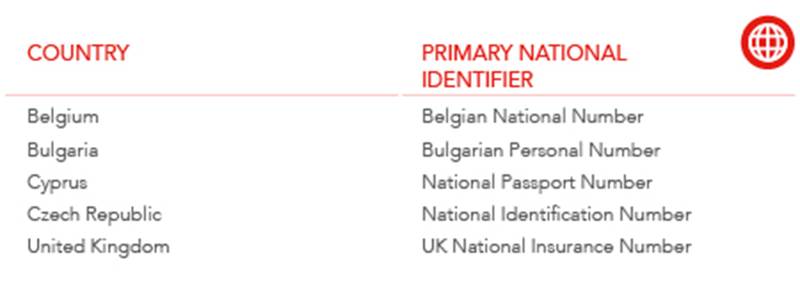In our previous update about MiFID II we outlined that a number of regulated services provided to our corporate clients, their employees and investors are required to be adapted to meet enhanced regulatory reporting requirements. In this, the second of a series of MiFID II updates, we look at these new reporting requirements and highlight the key impacts.
Equiniti handles thousands of reportable transactions every day and will need to make changes to all channels used to collect those instructions. It is important that corporate clients understand the changes taking place to help with any decisions about when and what additional information, if any, should be provided to their employees and shareholders.
Although information regarding share dealing transactions is currently reported to the FCA, from January 2018, under MiFID II, additional trade information will need to be provided. Collecting this additional information from shareholders and employees requires changes to both our systems and processes.
Transaction Reporting background
One of Equiniti’s key compliance priorities is to deliver Transaction Reporting in accordance with the requirements of MiFID II, effective from 3 January 2018.
A Transaction Reporting regime has been in place at EU level for some time, albeit much was delegated to the individual regulatory bodies for national implementation. MiFID I introduced a harmonised regime of Transaction Reporting to provide regulators sufficient day-to-day oversight of the markets.
Current Transaction Reporting includes information about the beneficiary and asset as well as details of the transaction. The general rule requires investment firms executing transactions to report details of their transactions to the national regulator (e.g. the Financial Conduct Authority (FCA)) within a day of trading.
Under MiFID II, the reporting regime will be overhauled and significantly extended in terms of scope and content.
MiFID II introduces substantial and wide ranging measures designed to improve investor protection and promote market integrity.” Christopher Woolard, Executive Director of Strategy and Competition, FCA
Organisations affected by MiFID II include investment banks, interdealer brokers, high frequency traders, trading venues, stockbrokers, investment managers, commodity derivatives traders and financial advisers, and the two new types of authorised entity: organised trading facilities and data reporting services providers.
Transaction Reporting impacts
Our Transaction Reporting project workstream has been divided into six components.
Transaction Reporting data fields
Our systems are being modified to facilitate the capture of information for additional data fields; the number of data fields is increasing from 23 currently used to 65. Out of the 65 data fields, 42 are relevant to transactions within the regulated activities that we provide to our clients. Information relates to:
Customer data is defined by the transacting entity, i.e. a person (defined as “natural individual” e.g. shareholder, employee) or a “legal entity” (e.g. corporate, trust, charity). Customer data to be collected is as follows:
*From 3 January 2018, investors who are deemed to be legal entities must have a Legal Entity Identifier (LEI) in order to undertake transactions that are subject to TR. For more information on LEI’s and how to apply, please contact your Equiniti relationship manager.
Individuals need to provide their nationality (or nationalities) and relevant national identifiers. The table below shows examples of primary national identifiers.

Collecting additional information is key, providing focus for changes to all channels used for share dealing. More detailed information about the collection of this data, how to construct an individual’s national identifier and the treatment of shareholders and employees who are nationals of more than one country or are internationally mobile can be downloaded below.
Changes to web portals
Our web portals will be modified to capture information for the new Transaction Reporting data fields.
Changes to other client instruction channels
As per changes to web portals, this component will focus on changes to customer instructions that are delivered via other media or channels (e.g. paper, telephone).
Transaction Reporting ‘engine’ and reconciliations
This will build/amend back office processes and includes reconciliation of data and management of rejected transaction reports.
Multi-party accounts
One of the core changes required for Transaction Reporting is the ability to identify all parties involved in a transaction, e.g. the buyer, the decision maker and the person responsible for executing the transaction. The decision maker is defined as a person who is acting under power of representation. In Equiniti terms, transactions related to accounts with parties with the power of representation (such as powers of attorney (POA)) attached to them, need to record who has made the decision to trade. Transactions related to user accounts that only have multiple beneficial owners but no POA (such as joint accounts), do not need to record decision makers.
Reversals and corrections
MiFID II reinforces the need to keep accurate books and records and the impact of such on statements and contract notes. A core part of this relates to how transaction reversals and/or corrections are recorded and reported, ensuring improved transparency to the customer and regulator.
How will MiFID II Transaction Reporting affect shareholders and employees?
Although many of the measures being introduced do not directly affect shareholders and employees, the important change relates to the additional information we are required to collect prior to any trading activity. Product and service changes are detailed below.
Shareholders and Corporate Sponsored Nominee (CSN) participants:
IN SCOPE
- Purchases and sales are reportable with additional data collected at the point of trade. This will include capturing information about the decision maker (and any linked person under a power of representation). Updating shareholders early about these changes may help them understand why additional data is being sought and enable them to have relevant information to hand when submitting trade instructions from 2018.
- Transfers into, out of, and within the CSN where there is a change of beneficial ownership are reportable with additional data collected at the point of transfer.
- To facilitate additional data capture our web portals and other instruction channels are in the process of being updated.
- Updated share dealing terms and conditions will be available by 2018.
OUT OF SCOPE
- Transfers into, out of, and within the CSN with no change of beneficial ownership are not reportable.
- Transfers between certificated shareholder accounts are not reportable.
- Purchase of shares under Dividend Reinvestment Plans for shareholders or participants in a CSN are not reportable.
Equiniti Global Nominee participants:
IN SCOPE
- Sales are reportable transactions with additional data collected either at account opening or at the point of sale.
- Unlike the investor position, purchases in respect of dividend reinvestment plans for employees in the Global Nominee are reportable at participant level. Where there is a requirement to capture additional data, Equiniti will contact participants directly, describing what data we need and why, informing them that if they don’t provide the required data they will not be able to participate in the reinvestment programme going forward.
- Transfers out of the Global Nominee where there is a change of beneficial ownership are reportable transactions with additional data collected at the point of transfer.
OUT OF SCOPE
- Transfers into, out of and within the Global Nominee with no change of beneficial ownership are not reportable.
Employee share plan participants:
Transaction Reporting impacts employee share plan related dealing transactions in a number of ways. Our focus is on ensuring that where changes are needed, the employee experience is as joined-up and as smooth as possible.
Tax advantaged SAYE (Sharesave) and International Sharesave plans
- As an exercise of option is not a transaction carried out by an investment firm, there is no Transaction Reporting requirement.
- However, in many cases there is a sale of shares linked with the exercise of that option. For example, an employee may exercise the option and subsequently sell some or all of the shares. In this scenario the sale is reportable.
- Even where an employee’s shares are included within a bulk (maturity) sale transaction, the individual’s details are reportable.
Discretionary share plans
- The same principle as above applies to discretionary share plan transactions. Shares received at vesting or from an exercise of option are not subject to Transaction Reporting. However, any sale transaction (e.g. sell all, sell to cover) carried out on those shares is reportable.
- Where there is ‘cliff vesting’ there may be a ‘default’ action taken if no instruction is received from the executive. If this involves a sale of the executive’s shares e.g. to cover tax, the default sale can only take place where the executive’s reportable details are held.
- Where shares are sold by ‘default’, reportable data will need to be collected prior to the vesting date. An executive’s data may already be held (as previously provided by the executive) or can be provided by the employer. Event planning discussions will determine appropriate actions. However, additional data may not be held by the employer. For example, the national passport number needed for Cypriot nationals may not be held by their employer. There is a requirement to provide details of the executive’s primary nationality; again this may not be held by an employer.
- A default sale cannot take place if reportable data is missing.
- Stock purchase plans will need to be reviewed to determine whether or not reportable data needs to be collected prior to 2018 purchases. More detailed information about these plans and reporting requirements can be found in the download below.
Tax advantaged Share Incentive Plans (SIP)
- Equiniti Share Plans Trustees Limited (ESPTL) holds SIP assets in an unregulated trust. Sales, purchases and dividend reinvestments carried out by the trustee are reportable transactions. However, Transaction Reporting is carried out at trust level, and not at an individual participant level.
- As ESPTL’s details are provided for Transaction Reporting, there is no impact where default sale transactions are carried out for leavers.
- If shares are held in a regulated trust, discussions will need to take place with the trustee to determine any impacts.
General impacts:
- Employee and investor web portals and other instruction channels are being updated to capture additional data for employees choosing to transfer their shares into regulated products (e.g. CSN, ISA) to enable future transaction reporting where required.
- Terms and conditions of regulated products are being updated.
- Limit order instructions received in 2017, that remain valid into 2018, will need to have sufficient data for reporting purposes in order for the limit order to be actioned.
- Some corporate action transactions are reportable with additional data collected as part of the instruction.
Summary
Equiniti handles thousands of reportable transactions every day and receives customer instructions through a variety of different channels from individuals based in the UK and across the world. Transaction Reporting has multi-faceted impacts on our systems, web portals, other instruction channels and customer communications, making this a key component of our MiFID II project work this year.
Our next article will take a detailed look at Investor Information, a key component of MiFID II which legislates the type and frequency of information provided to investors. For further information on this subject, please speak with your Equiniti relationship manager.

